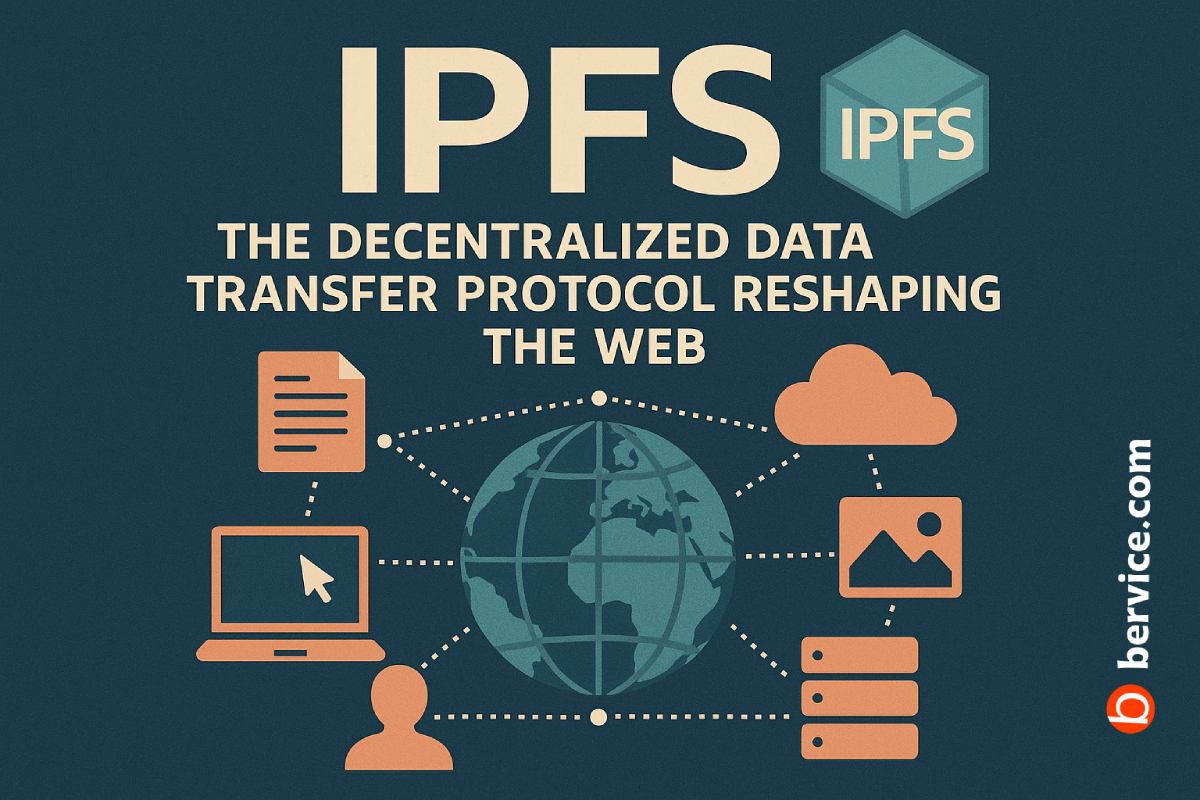
Introduction to IPFS
The InterPlanetary File System (IPFS) is a revolutionary peer-to-peer protocol designed to decentralize data storage and content delivery across the internet. Unlike the traditional HTTP protocol, where data is fetched from centralized servers, IPFS retrieves content based on its content hash from distributed nodes. This architecture enhances security, resilience, and speed while reducing reliance on centralized infrastructure.
IPFS was developed by Protocol Labs and first introduced in 2015. It aims to build a permanent and versioned web—one where files are accessible even if the original host is offline.
How IPFS Works: A Shift from Location-Based to Content-Based Addressing
Traditional web protocols like HTTP use location-based addressing (e.g., https://example.com/image.jpg) to find content, meaning the browser must retrieve the file from a specific server. IPFS, on the other hand, uses content-based addressing, assigning each file a unique cryptographic hash based on its content.
When a file is added to IPFS:
- It is split into smaller blocks.
- Each block is hashed.
- The content is stored in a distributed network.
- The user receives a CID (Content Identifier), a unique fingerprint of the file.
Retrieving the file later requires only the CID. Any node that has the content can serve it, reducing bottlenecks and improving load times.
Key Features of IPFS
- Decentralization: Files are distributed across a global network of nodes.
- Content Integrity: The hash-based system ensures that any tampering with content changes its CID, making unauthorized modifications easy to detect.
- Versioning and Immutability: Files added to IPFS are immutable; updated versions generate new CIDs, supporting version control.
- Efficiency and Redundancy: Frequently accessed content is cached closer to users, lowering bandwidth usage and improving access times.
Use Cases and Applications
IPFS is being used in a wide range of industries:
- Web3 and DApps: Decentralized applications often use IPFS to store front-end code, documents, and metadata for NFTs.
- Scientific Data: Projects like Filecoin and Open Science frameworks store immutable research data on IPFS.
- Censorship Resistance: Journalists and activists use IPFS to store and distribute information in regions with internet censorship.
- Blockchain Storage Layer: Blockchains reference data stored on IPFS (e.g., NFT metadata) without bloating the chain itself.
IPFS vs HTTP: A Comparison
| Feature | HTTP | IPFS |
|---|---|---|
| Addressing | Location-based | Content-based (hash) |
| Resilience | Single point of failure (server) | Redundant across multiple nodes |
| Censorship resistance | Easily blocked | Hard to censor |
| Offline availability | Rare | Available if cached locally |
| Performance | Server dependent | Peer-to-peer optimization |
Challenges and Limitations
Despite its innovation, IPFS faces several challenges:
- Persistence: Files are not guaranteed to stay online unless actively pinned or stored by incentive layers like Filecoin.
- Scalability: While scalable in theory, performance varies depending on node availability and network bandwidth.
- User-Friendliness: Integration into mainstream applications still requires technical expertise.
The Future of IPFS and Decentralized Web
IPFS is a foundational technology for the decentralized internet or Web3. As more developers build decentralized apps, the demand for resilient, censorship-resistant content delivery will grow. With protocols like Filecoin incentivizing storage, and advancements like IPNS (InterPlanetary Naming System) for dynamic content, IPFS is positioned to be a critical infrastructure layer of the future internet.
Conclusion
IPFS is not just another data transfer protocol; it’s a paradigm shift in how we think about digital information. By removing centralized chokepoints and introducing trustless content delivery, it empowers developers, users, and organizations to create a more open, resilient, and secure internet.
As global interest in decentralization continues to surge, IPFS will remain a cornerstone technology, laying the groundwork for the next generation of the web.
Connect with us : https://linktr.ee/bervice





